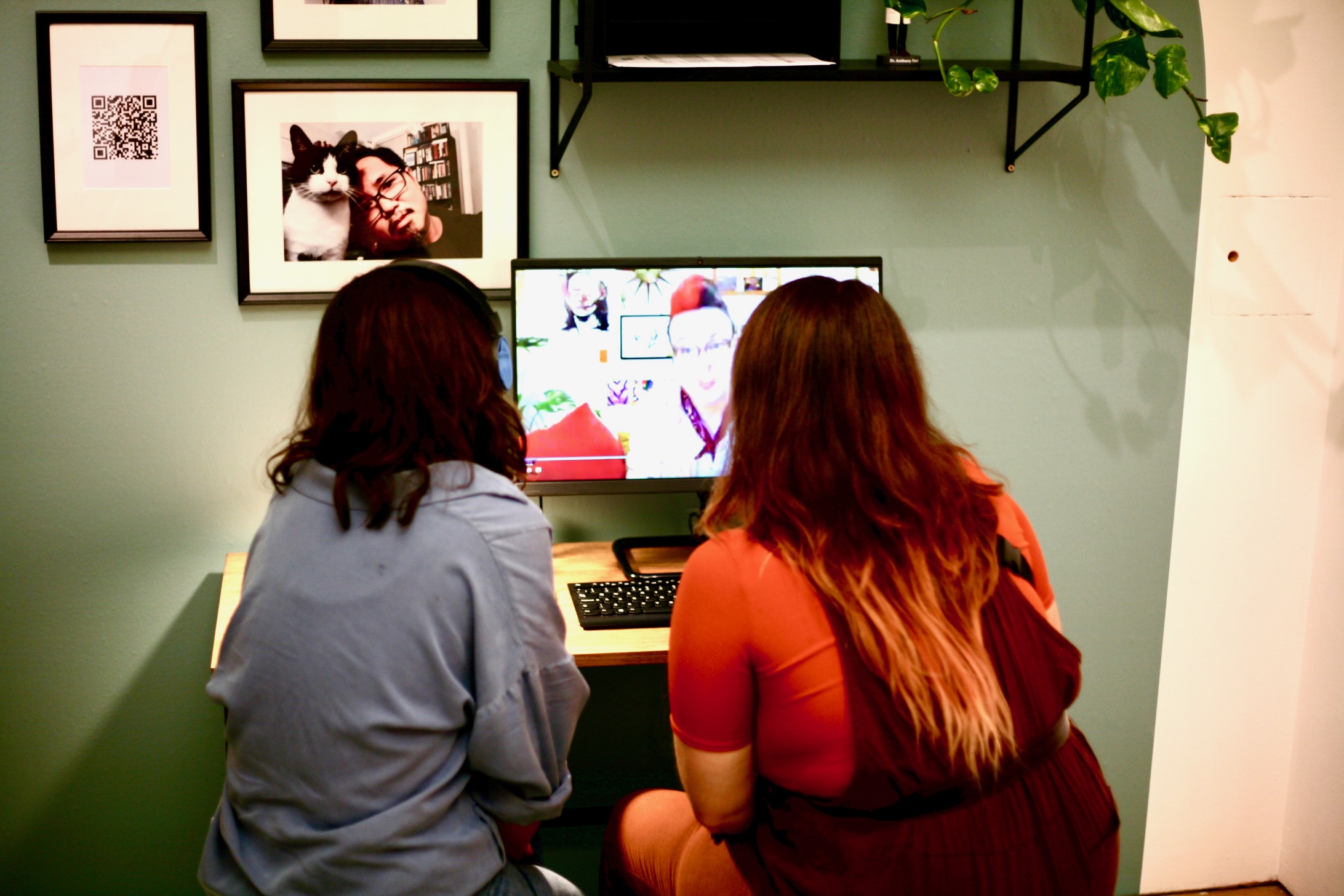The COVID-19 pandemic exacted a brutal physical and mental toll on the world’s population, including many people in the LGBTQ community, especially transgender individuals, who have experienced extreme loneliness and isolation.
Molly Merryman, Ph.D., associate professor in Kent State’s School of Peace and Conflict Studies and founding director of the former Center for the Study of Gender and Sexuality, heard firsthand how the pandemic lockdowns in the United Kingdom had a profound impact on the LGBTQ community as part of a project titled Resilience During the Pandemic: LGBTQ+ Stories.
Merryman, who is also research director of Queer Britain/Virtually Queer, led a team gathering oral histories of LGBTQ residents in the U.K. and producing a video exhibit featured in the recently opened Queer Britain Museum in London and other venues in the U.K.
Merryman and Lauren Vachon, assistant professor in Kent State’s LGBTQ studies program and coordinator of the LGBTQ studies minor program, were instrumental in obtaining a $35,000 grant from the U.S. Department of State that supported the project exhibition, traveling to four cities throughout the U.K.
‚ÄúWe talked to LGBTQ people about their experiences related to the pandemic and how it was affecting their lives, with a specific interest in considerations related to their sexual orientation or gender identity and how it was impacting the community,‚ÄĚ Merryman said. ‚ÄúTrans participants noted that it really impacted them not being able to get scheduled for transition because in those early days all medical things were shut down.‚ÄĚ 
Kent State Honors College graduate Moira Armstrong (they/them), who minored in LGBTQ studies, and other Kent State students assisted Merryman and Vachon with the interviews, as did students at Goldsmiths, University of London.
Though the project was not based in the U.S., the work elevates the profile of Kent State as well as the School of Peace and Conflict Studies, bringing them to the attention of the U.S. State Department and the rest of the world. The research elevates LGBTQ studies as well.
Since 2018, Merryman has been the research director for the Queer Britain Museum, a charity before it was built. The goal was to create the first national LGBTQ museum in the U.K. She began to create an ongoing video-based oral history project called Virtually Queer.
In May 2020, Merryman planned to take a group of undergraduate students from Kent State to do a series of interviews in Belfast and Northern Ireland for the museum. Then the pandemic hit.
She reached out to Vachon and a colleague at Goldsmiths and they began oral interviews with LGBTQ people in fall 2020 via Zoom. Kent State students were trained to conduct comprehensive interviews like those Vachon uses in her undergraduate Research Methods class, Merryman said.
Armstrong, who graduated in May 2022, did so well with the interviews that they became the project’s research assistant, Merryman said. They are now starting a graduate degree program at Birbeck, University of London, studying gender and sexuality, and they have stayed involved with Queer Britain.
Merryman and the team interviewed LGBTQ people throughout the U.K, including in Belfast, Northern Ireland and Wales. Resilience During the Pandemic: LGBTQ+ Stories was the first exhibition at the museum and will run from July until April 2023. The project was portable so it could be taken on trains or planes, and it had interactive touchscreens to encourage engagement with the videos.
Vachon also created a side project called Viral Verses, a collection of poetry and excerpts of transcripts from the interviews.
The U.S. Embassy in London was quite impressed with the work and held an event at the U.S. ambassador's residence to ‚Äúbuild relationships and further international ties.‚ÄĚ
‚ÄúThey were interested and very excited to know that we have a School of Peace and Conflict Studies, and that May 4th isn't just our past,‚ÄĚ Merryman said. ‚ÄúAs an institution, we have preserved the legacy of nonviolent, peaceful change. And one of the ways that we have preserved that legacy is through the School of Peace and Conflict Studies.‚ÄĚ

